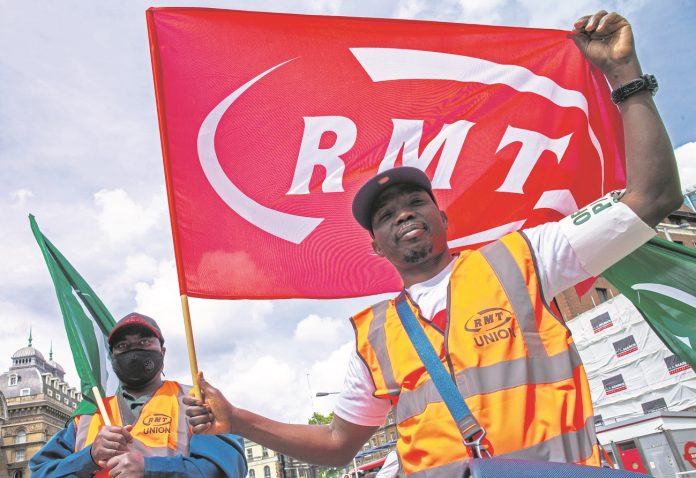April Ashley, Unison national executive council, black members rep (female) (personal capacity)
Camden traffic wardens – mainly low-paid Black workers – have won a fantastic victory of a £15-an-hour wage after eight weeks of strike action. More than 100 workers took part in the long-running dispute with NSL, Camden Council’s private contractor. Pay will be increased from £12.70 an hour to £15 an hour. And by 2025 staff will be on a minimum hourly rate of £16.50.
This is an example of Black, Asian and alternative ethnicity workers being at the forefront of the strike wave that has swept across Britain for more than a year.
We have seen St Mungo’s homelessness workers achieving a higher pay offer after weeks of strike action with Black shop stewards to the fore, and Abellio bus workers won a magnificent £18-an-hour pay victory after a determined struggle with nearly all Black and Asian workers on very lively pickets lines – setting new traditions.
Amazon workers are still in the middle of their pay dispute with leading Black stewards. More recently, health workers in Unite in a number of hospitals have taken strike action including Bart’s NHS Trust in East London with mainly Black and migrant workers who last year won a historic victory for higher pay and a return to direct NHS employment. Now, this year, the same workers are taking strike action over safe staffing levels, bank rates and lump-sum payments.
RMT train workers are continuing their dispute. And earlier this year health workers in the Royal College of Nursing and Unison were on strike for higher pay, as well as Royal Mail workers in the Communication Workers Union. All of the strikes had a significant number of Black workers participating and on the picket lines.
Black workers have been part of the strike wave in huge numbers because they have been hit hardest by the cost-of-living crisis.
As the head of the Trades Union Congress (TUC) equalities unit said: “The cost-of-living crisis is going to hit Black workers disproportionately because of the kinds of jobs they are doing, the impact of Covid, and the challenges of an institutionally racist labour market.”
The TUC report, ‘Still rigged – racism in the UK Labour Market’, showed stark figures of unemployment, precarious working and low-pay for black workers.
It states: “One in six (14.6%) of Black and minority ethnic workers are likely to be in insecure work, compared to 11.15% of white workers in this position. Ministers have ignored the growth in casualisation suffered by Black workers who are disproportionately trapped in temporary jobs, agency jobs and zero-hour contracts. This trend has resulted in high levels of in-work poverty, resulting in Black workers being trapped in low-waged occupations and in situations where they are expected to do the most demanding and dangerous work.”
It is these worsening economic conditions that have forced Black workers to be at the forefront of the enormous strike wave of workers fighting back against the worst drop in living standards since records began.
Economic crisis
The economic crisis has impacted Black workers disproportionately because capitalism is an exploitative system deliberately using divide-and-rule tactics of racism, sexism, anti-migrant rhetoric, and so on to oppress the working class and the poorest in society in order to maintain and increase the wealth of the richest 1%.
The Tories and bosses use divide and rule, blaming everyone else except the capitalist system for the collapse of living standards, is increasing as the economic crisis deepens.
This has meant ‘culture wars’ and emboldens far-right activists trying to blame migrant workers for poverty, unemployment, lack of housing and the collapse of local services instead of the root cause, the capitalist system.
As Malcolm X said: “You can’t have capitalism without racism”. Capitalism means continued oppression and exploitation of the working class.
The mass strike wave has been able to raise wages and better conditions for some workers, and have forced some employers back.
But only by building a mass movement uniting workers of all backgrounds on a common programme will we have the power to take the wealth off the 1% and run society for the 99%, rid society of the capitalist system, and build a socialist society free from exploitation, discrimination and oppression.







